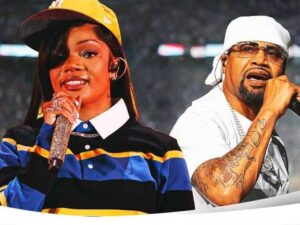“Charles Barkley Blasts ‘Bums’ in Viral Rant: A Blast from the Past or Out of Touch?”

Hall of Famer Charles Barkley — known for his outspoken views — made headlines this week with a blunt on-air critique of today’s NBA players. His words:
“When people criticize players today, it’s called hating. And that’s why these bums be driving me crazy.” �
talksport.com +1
The context
Barkley delivered his remarks during an appearance on Inside the NBA. �
Bounding Into Sports +1
His core complaint: that the shift in culture around criticism, coaching, accountability and player empowerment has diluted a “toughness” he associates with his era of basketball.
His timing comes as the 2025-26 NBA season opens, viewership is strong, and younger players are increasingly empowered and media-savvy.
Why it matters
Cultural shift in sport: Barkley’s rant encapsulates a broader generational tension in professional sport: old-school grit vs new-school empowerment.
Coaching & accountability: His argument raises an interesting question—how should coaches engage with modern athletes? Should the standards of “critique” be the same? Are players more sensitive? Is the game itself different?
Media and narrative power: The fact his words went viral underscores how off-court commentary can become part of the sporting story itself, influencing perception of leagues, players and culture.
Fan reaction: Mixed. Some agreed with him, calling today’s generation “soft”; others argued he might be outdated, ignoring how the game has changed in pace, business, reality.
Implications to monitor
Will teams respond? Might coaches or players address the issue publicly, or will the league weigh in on cultural expectations?
Could this feed into how rookie-veteran relations evolve, or how mentorship in the NBA is structured?
Are we seeing a deeper shift where player mental health/empowerment is now being prioritised, but traditional “toughness” is being redefined rather than rejected?
A nuanced take
Yes, Barkley’s delivery was provocative — and some of the phrasing (“bums”) will naturally draw flak. But the underlying debate is valid: sport evolves, but evolution includes tensions between old and new philosophies. Whether you agree with him or not, his rant has reopened a conversation many sports organisations are quietly having: how to balance athlete welfare, empowerment, performance standards and accountability in an era of rapid change.



